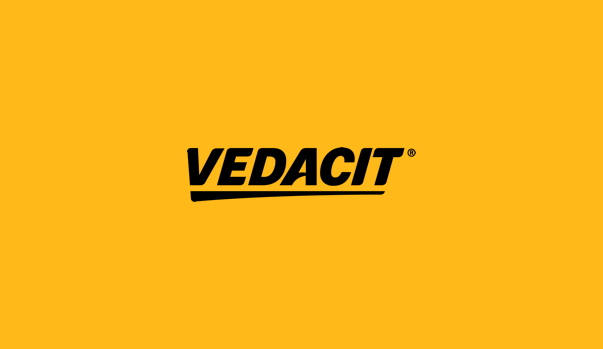

Vedacit

São Paulo, Brazil
January 2023
Construction
Manufacturing
Brazil
Líder no mercado de impermeabilização e produtos de alta tecnologia para a construção civil, a Vedacit apresenta soluções inovadoras para a durabilidade e saúde das edificações e se aproxima das famílias brasileiras com soluções que são utilizadas no dia a dia, de forma prática e eficiente. A empresa, com 86 anos de atuação, eleva a impermeabilização a um patamar de maior modernidade estando mais perto das necessidades de seus consumidores. São mais de 100 produtos em suas linhas de impermeabilizantes, materiais para a recuperação de estruturas e aditivos para concreto, desenvolvidos em laboratório próprio, com a mais alta tecnologia para oferecer soluções apropriadas a diferentes dimensões. Seus itens podem ser encontrados em mais de 50 mil pontos de venda. Genuinamente nacional, a Vedacit possui três unidades fabris, duas em São Paulo - capital e Itatiba - e uma em Salvador, abastecendo todas as regiões do Brasil. Conta ainda com quatro grandes regionais distribuídas estrategicamente pelo país.
Overall B Impact Score
Governance 14.6
Governance evaluates a company's overall mission, engagement around its social/environmental impact, ethics, and transparency. This section also evaluates the ability of a company to protect their mission and formally consider stakeholders in decision making through their corporate structure (e.g. benefit corporation) or corporate governing documents.
What is this? A company with an Impact Business Model is intentionally designed to create a specific positive outcome for one of its stakeholders - such as workers, community, environment, or customers.
Workers 27.1
Workers evaluates a company’s contributions to its employees’ financial security, health & safety, wellness, career development, and engagement & satisfaction. In addition, this section recognizes business models designed to benefit workers, such as companies that are at least 40% owned by non-executive employees and those that have workforce development programs to support individuals with barriers to employment.
Community 19.5
Community evaluates a company’s engagement with and impact on the communities in which it operates, hires from, and sources from. Topics include diversity, equity & inclusion, economic impact, civic engagement, charitable giving, and supply chain management. In addition, this section recognizes business models that are designed to address specific community-oriented problems, such as poverty alleviation through fair trade sourcing or distribution via microenterprises, producer cooperative models, locally focused economic development, and formal charitable giving commitments.
Environment 23.8
Environment evaluates a company’s overall environmental management practices as well as its impact on the air, climate, water, land, and biodiversity. This includes the direct impact of a company’s operations and, when applicable its supply chain and distribution channels. This section also recognizes companies with environmentally innovative production processes and those that sell products or services that have a positive environmental impact. Some examples might include products and services that create renewable energy, reduce consumption or waste, conserve land or wildlife, provide less toxic alternatives to the market, or educate people about environmental problems.
Customers 2.4
Customers evaluates a company’s stewardship of its customers through the quality of its products and services, ethical marketing, data privacy and security, and feedback channels. In addition, this section recognizes products or services that are designed to address a particular social problem for or through its customers, such as health or educational products, arts & media products, serving underserved customers/clients, and services that improve the social impact of other businesses or organizations.